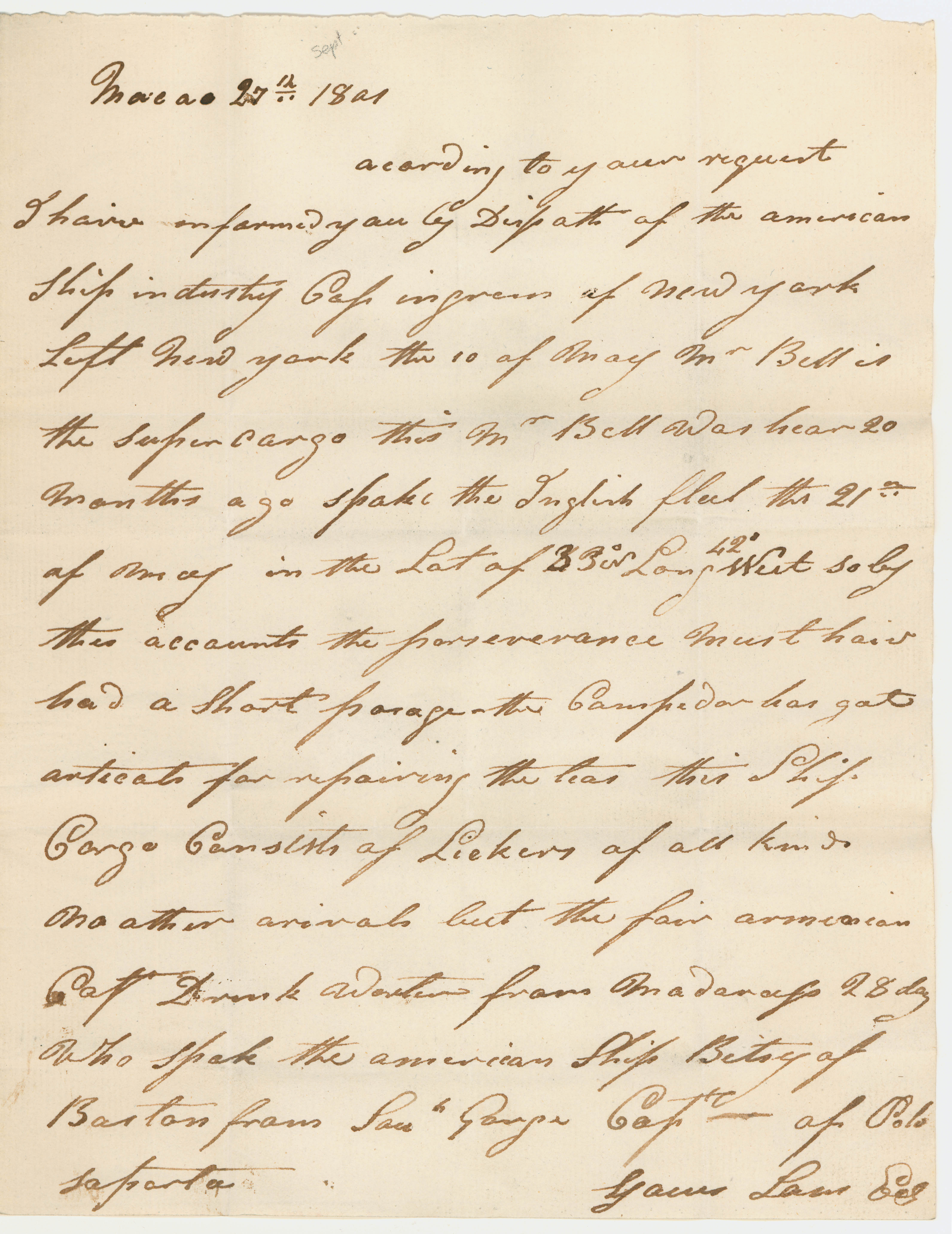By Dan Hinchen
It is a busy week here at the Society with a variety of public programs for your enjoyment, so clear your calendar and check out ours!
Starting the week off on Tuesday, 1 October, is the first event of the season from our Early American History Seminar series. Join us as Karin A. Wulf of William and Mary College presents a “Town Hall Meeting with the New Director of the Omohundro Institute of Early American History and Culture.” This town hall meeting will provide an opportunity to discuss the present and future of the OIEAHC. Through conferences, fellowships, and publications including the William and Mary Quarterly, the institute fosters scholarship on colonial and early national American history as well as the Atlantic world. Wulf began her tenure on 1 July. Be sure to RSVP for this program by e-mailing seminars@masshist.org or phoning 617-646-0568. Program begins at 5:15PM.
On Wednesday, 2 October, come in at noon for a Brown Bag Lunch talk. This week, Marisa Benoit of Oxford University presents “New England Teares, for Old England’s Feares: Comparing Attitudes Toward Infertility in Early Modern England and Colonial New England.” Through analysis of a wide variety of sources from 1650 to 1750, this comparative study of attitudes toward infertility in colonial New England and early modern England examines two societies linked by cultural and religious norms but facing different challenges. These challenges are explored by analyzing infertility’s representation in popular, religious, and medical literature and personal writings from both societies. Analysis of these representations of infertility provides a different angle through which to view the links between “Old” and New England, a relationship often described through reproductive language, while highlighting the connections between the sources themselves. The topic provides the opportunity to untangle the web of emerging anatomical discoveries, social ideas about gender relations, the family, and the importance of children, and religious ideas about generation that characterized attitudes toward reproduction in the early modern period. This event if free and open to the public. Pack a lunch and come on by!
Thursday, 3 October, will see the preliminary unveiling of the Society’s newest exhibition. MHS Fellows and Members are invited to a special preview and reception for “The Cabinetmaker & the Carver,” beginning at 6:00PM. This exhibit provides visitors with an opportunity to view nearly 50 examples of rarely seen furniture borrowed from distinguished private collections in the greater Boston area. Ranging in date from the late-17th century to about 1900, these privately held treasures, generously lent by their owners, provide a look at the trajectory of cabinetmaking in the Hub.Tickets are $25 (no charge for MHS Fund Giving Circle members) and RSVP is required. To register by phone or e-mail, call 617-646-0552 or e-mail bwillett@masshist.org.
This exhibit opens to the public on Friday, 4 October, and will be on display Monday through Saturday, 10:00AM to 4:00PM, until 17 January 2014. The furniture pieces are supplemented with documents, portraits, and other material from the Society’s collections that help place them in historical context.
Coinciding with the public opening of the exhibition, also on Friday, 4 October, is “New Thoughts on Old Things: Four centuries of Furnishing the Northeast.” This day-long symposium, co-sponsored by the Museum of Fine Arts, Boston, the Colonial Society of Massachusetts, and the MHS, is devoted to new scholarly research on the design, production, and circulation of furnishings in New England. The program will feature keynote speaker Glenn Adamson, Head of Research at the Victoria and Albert Museum in London, along with a select group of emerging scholars. Taking place at the Museum of Fine Arts and beginning at 10:00AM, the symposium is free with admission to the museum. Advanced ticketing is recommended. For information, please contact Lauren Spengler at lspengler@mfa.org.
The Society’s exhibition and the public symposium are presented as part of Four Centuries of Massachusetts Furniture, a collaborative project of the MHS and ten other institutions that features exhibitions, lectures, demonstrations, and publications to celebrate the Bay State’s legacy of furniture-making. Visit fourcenturies.org to learn more.
Finally, on Saturday, 6 October, the MHS, in collaboration with the National Archives at Boston and Massachusetts History Day, will present “Painless: A Survival Guide to the ‘Dreaded’ History Project.” This free workshop for teachers, students, librarians, and archivists explores how to approach primary source research in special libraries and archives through a range of historical documents including letters, diaries, songs, petitions, and government records. The workshop will take place at the National Archives in Waltham and begins at 9:00AM. For more information, or to register, please contact Kathleen Barker at the Massachusetts Historical Society: eduation@masshist.org or 617-646-0557.
Attention researchers: The library of the MHS will close at 3:30PM on Thursday, 3 October.




